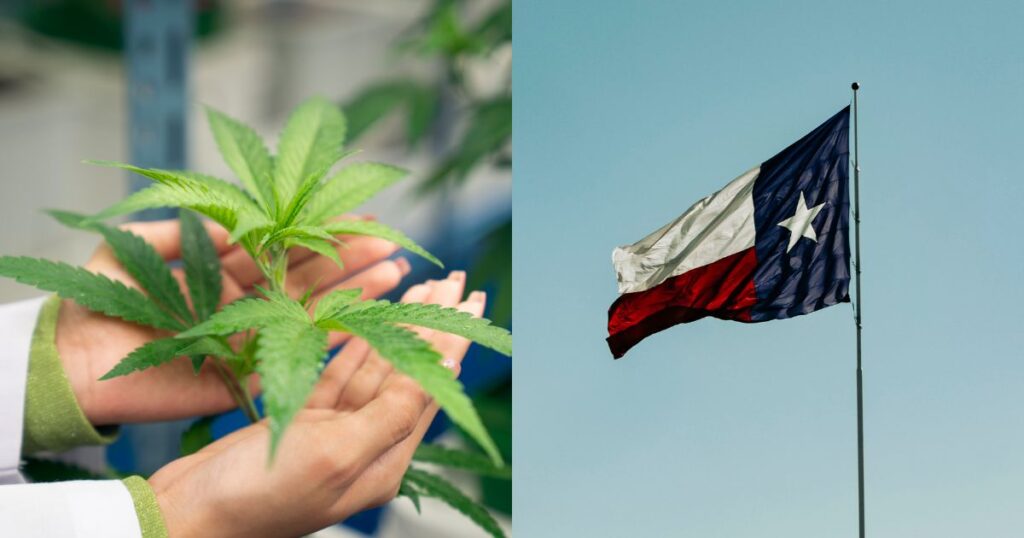This past weekend, Texas Governor Greg Abbott signed House Bill 46 into law, drastically expanding the state’s medical cannabis program. This decision placed Texas among 40 states offering medical cannabis access in a more comprehensive way. For Texans in need of relief, this development marks an important step toward greater availability of cannabis as a viable treatment option for chronic pain and several other severe medical conditions.
Move Toward Better Medical Cannabis Access
House Bill 46 (HB 46) amends the Texas Compassionate Use Program (TCUP), originally created in 2015. Previously, Texas had one of the most restrictive, low-THC medical cannabis programs in the nation. Chronic pain, Crohn’s disease, traumatic brain injuries, and terminal illnesses all fell outside of TCUP’s highly selective coverage, leaving countless patients without access to necessary care. HB 46 fundamentally shifts that narrative.
By expanding the qualifying conditions to include chronic pain, Crohn’s disease, traumatic brain injury (TBI), and other serious disorders, this legislation acknowledges the growing acceptance of cannabis as a legitimate, evidence-based therapeutic option.
“For too long, the existing Texas Compassionate Use Program has been severely limited, leaving countless Texans without the relief they desperately need. Texans have spoken, and their voices have been heard. HB 46 will expand access to medical cannabis, a relatively safe and effective treatment option that has long been sought by patients suffering from pain and several other serious medical conditions,” said Kevin Caldwell, Southeast Legislative Manager at the Marijuana Policy Project.
What’s Changing with HB 46?
The improvements introduced by HB 46 are significant, considering the strict regulations that existed previously. These updates include the following key provisions:
- Expanded Qualifying Conditions: Eligible patients now include those suffering from conditions such as chronic pain, TBI, Crohn’s disease, and end-of-life or palliative care patients.
- More Diverse Cannabis Products: Patients can now access new delivery methods, including topical creams, lotions, inhalers, vaporizers, and nebulizers, in addition to existing low-THC options.
- Higher THC Doses: The legal THC limit per dose has been increased to 10 milligrams, with no package exceeding 1 gram of THC. This change provides higher therapeutic doses for patients requiring more intensive treatment.
- Expanded Licensing: The number of medical cannabis dispensary licenses will grow from three to fifteen, significantly increasing accessibility for Texans in both urban and rural areas.
Crucial Win Amid Legislative Uncertainty
The passage of HB 46 couldn’t have come at a more pivotal time, particularly following Governor Abbott’s decision to veto Senate Bill 3 (SB 3), a proposal that sought to ban consumable hemp products containing Delta-8 and Delta-9 THC. While Abbott’s veto temporarily safeguarded the Texas hemp industry, regulatory revisions and enhanced restrictions are likely to be on the horizon.
Lieutenant Governor Dan Patrick, who strongly supported SB 3, is expected to push for tighter controls during an upcoming special legislative session. These changes could likely include stricter regulations around the sale and marketing of hemp-derived THC products.
I am glad to see that Gov. @GregAbbott_TX, based on this statement from his spokesperson, has decided to ban all synthetic cannabis including Delta 8, Delta 10, and others. My staff will immediately reach out to begin working with Gov. Abbott’s office to craft language to achieve… https://t.co/uYwNjO2sE4
— Office of the Lieutenant Governor Dan Patrick (@LtGovTX) June 23, 2025
If SB 3 or similar legislation had passed without the safeguards of HB 46, many Texans depending on cannabis for medical relief could have been left without options.
HB 46 now provides crucial protection for medical cannabis patients in Texas, ensuring they stay included in the legislative and regulatory advancements within the state’s cannabis ecosystem.
Impact on Texans and the Greater Medical Cannabis Movement
The signing of HB 46 paves the way for over 116,000 registered patients in the Texas Compassionate Use Program to access better relief options, with the potential for that number to grow exponentially in the coming years. With a larger list of conditions and easier access through expanded dispensary licensing, the program is better poised to meet the needs of patients across the state.
This move also positions Texas as a state playing catch-up to the national medical cannabis movement. Polling consistently shows that the majority of Americans, including Texans, support medical cannabis legalization, and HB 46 is a step toward aligning with national public opinion and evidence-based cannabis policy reform.
The enactment of HB 46 also carries symbolic weight in conversations about cannabis legislation at the federal level and in traditionally conservative states. Governor Abbott, despite his opposition to recreational cannabis use, recognized the medical necessity for many Texans, challenging outdated stigmas tied to cannabis.
Challenges Ahead
While emerging legislation like HB 46 is promising, uncertainties remain. One critical concern is the potential impact of stricter regulatory measures following the special legislative session on hemp product regulation.
The deliberations will likely explore more consistent rules around marketing, distribution, and sales, which could affect the availability of over-the-counter cannabis-derived goods in Texas.
Additionally, while HB 46 expands access, it stops short of granting automatic authority to the Texas Department of State Health Services to add new qualifying conditions. Physicians can petition the department to suggest new conditions as being beneficial, but any expansions will ultimately require legislative action.
These procedural barriers may slow the program’s progress, particularly for conditions not included in the initial list.
The passing of HB 46 marks a significant milestone for medical cannabis in Texas, but the work is far from over. Expanding access to medical cannabis needs to be part of an ongoing effort to ensure all patients have equitable access to safe and effective treatment.
Policymakers must stay attuned to the needs of patients, healthcare providers, and industry stakeholders to craft legislation that prioritizes both public health and sustainable growth for Texas’ cannabis ecosystem.
















